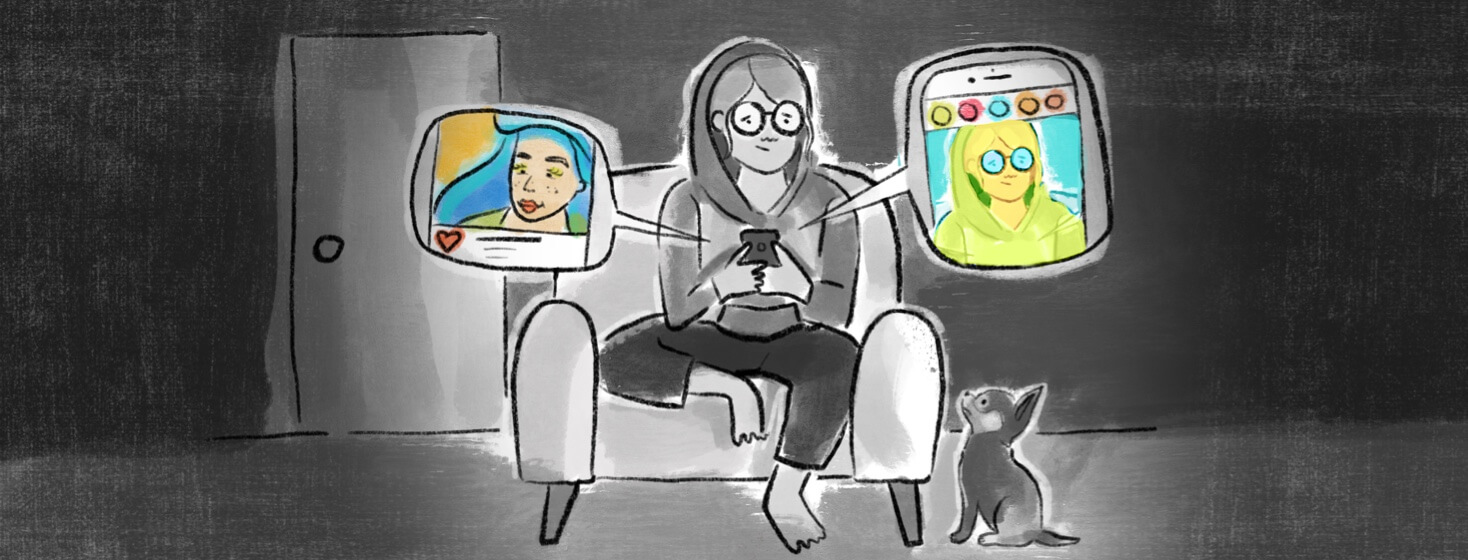Social Media Filters and Thyroid Eye Disease
Let’s talk social media filters and thyroid eye disease.
I am very active on social media as an advocate within the autoimmune disease community, but ever since I was diagnosed with thyroid eye disease (TED) photos and videos have been difficult and emotional for me. It was not that I felt like I needed to look Instagram-perfect - I just wanted to look and feel like myself, but I did not. Instead, all I saw was a stranger in deep pain, and it hurt. It simply was not worth the emotional distress, so I stopped posting photos and videos of myself.
A positive experience with social media filters and TED
Then social media filters began to gain popularity. I tried a few out. "Oh, this is cool!" I said of one that featured perfect eye makeup that somehow seemed to tone down my visible TED symptoms. I felt more relaxed, pressed record, and posted my first video in several months. It was a small thing, but I enjoyed that taste of normalcy.
In a way, this filter felt like a tool, similar to how I use sunglasses in photos. I am never hiding behind sunglasses. Instead, I am simply taking the stress and worry about my eyes out of the equation. If filters could help me feel a little more at peace and make navigating social media a little easier, hey that is fine with me.
Different emotions with different filters
Since that time, many other filters have emerged. A recent filter that immediately went viral attempted to show users what they may have looked like as a teenager. I had plenty of friends who tried it exclaiming, "OMG I looked nothing like this - who is this person??" Of course, this is a filter, not a time machine.
But I saw other app users have very visceral and emotional reactions to seeing versions of their younger selves. If you are included in that group and enjoyed the filter - good, I am glad that you experienced a meaningful moment! I watched a particularly touching video of someone who finally saw the teenager they had always wanted to be, and I cried happy tears for them.
For myself, I knew exactly what would happen when I turned on the filter. Thanks to TED, my face has changed in many ways, and I no longer look like my old self. Even after multiple surgeries, I do not look exactly like the old me - I am someone new.
"But everyone’s face changes over time," I recall a friend saying. Yes, everyone ages, but that is completely different from the facial disfigurement that TED causes. I knew that once the filter came on, I would not see the old me I remember from high school photos. I would see a younger version of the new me.
Still, I was curious. It is just a filter, right? There she was, a stranger, just as I predicted. Who was she? Honestly, I almost laughed because initially, I thought she looked like a Whoville child from How The Grinch Stole Christmas. But there she was, and I felt a small unexpected pang in my heart.
Another reminder of thyroid eye disease
Here’s the thing - yes, this is just a social media filter. I am not upset about a filter or aging. It was just another moment of remembering that I will never look like the old me again. It was another moment of recalling what thyroid eye disease has stolen from me and that this condition will always be a part of my identity. I am continuously working on coming to terms with all this. Sometimes little moments remind us of monumental things.
So if you have had similar little moments - you are not alone.
Have you tried social media filters? What was that experience like for you? Share your story with the community by clicking the button below.

Join the conversation